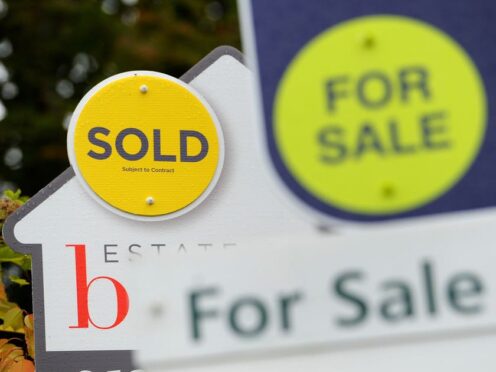
More first-time buyers are expected to be helped onto the property ladder by building society reforms backed by MPs.
The Building Societies Act 1986 (Amendment) Bill has moved closer to becoming law after it received an unopposed third reading in the Commons on Friday.
The Government-backed Bill aims to modernise societies by expanding their lending capacity, with Labour insisting the changes would support “more working people to become homeowners”.
The proposed reforms were moved after a Government consultation considered how to allow building societies to “compete on a more level playing field with banks” and to promote competition within the financial services sector.
Labour’s Julie Elliott, the Bill’s sponsor, said: “It is important to acknowledge that whilst the housing sector has recovered significantly since the record low mortgage approvals during the Covid pandemic, and has recovered from the acute economic shock caused by the last Conservative administration, mortgage approvals at this current time are still below that which we saw before the pandemic.
“That is why I think a Bill like this, which gives more choice to the building society sector to operate in the interests of their members, is a good thing.”
The Sunderland Central MP said the sector had a “very strong record” in supporting first-time buyers, noting every £10 billion of lending could support “an additional 20,000 mortgages”.

Conservative MP Peter Gibson highlighted support for the Bill from Darlington Building Society in his constituency, with the Commons hearing the reforms would help the sector “survive and thrive” by “cutting red tape” and removing “outdated bureaucratic governance systems not faced by the big banks”.
For Labour, shadow Treasury minister Darren Jones said: “Building societies and mutuals have a long and proud tradition of supporting working people to access affordable finance.
“Today, the sector continues to play a crucial role in promoting financial responsibility and resilience among its members.
“Building societies also enable families to get on the housing ladder; they direct a significant proportion of their lending to first-time buyers.
“This Bill could unlock significant additional lending capacity from building societies, supporting more working people to become homeowners.”
Treasury minister Gareth Davies offered the Government’s support and said the Bill would help to ensure the “future growth and success” of the building society sector.
He said: “(It) will help them to grow and compete with retail banks so that they can continue to provide vital diversity to the UK financial services sector.”
The Bill will undergo further scrutiny in the House of Lords at a later date.

Enjoy the convenience of having The Sunday Post delivered as a digital ePaper straight to your smartphone, tablet or computer.
Subscribe for only £5.49 a month and enjoy all the benefits of the printed paper as a digital replica.
Subscribe